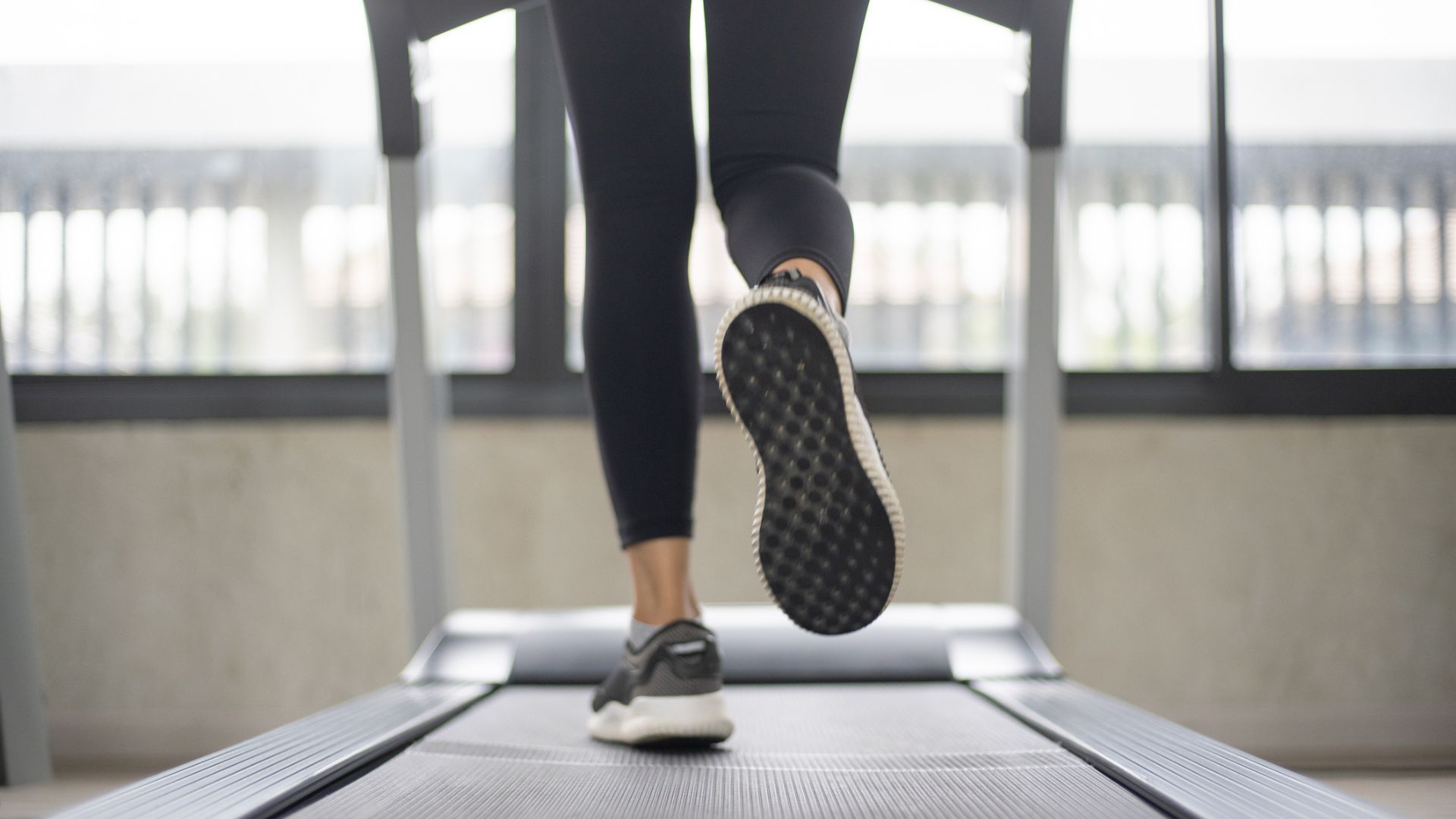Taking regular breaks on your daily walk helps burn more calories, a new study reveals
A new study has found that short walking intervals can burn more calories than doing continuous exercise


If there was ever an excuse to stop for coffee or lunch on your weekend walk, this is it. A new study has found that taking regular breaks during a walk can burn more calories than continuously moving.
When it comes to losing weight, we're often told that it's all about calories in versus calories out (also known as a calorie deficit). While this is very important, if you've taken up walking for weight loss, there are small ways you can tune up your routine to burn calories more efficiently, whether you walk for 30 minutes a day or less.
Researchers from the University of Milan and the University of Konstanz put participants on a stair climber and a treadmill at three different speeds, with intervals lasting from 10 seconds to four minutes, measuring their oxygen and energy demands across the efforts. The more oxygen used during the exercise, the more energy used, and the more efficient the workout would be at burning calories.
The study, published in the Proceedings of The Royal Society B, found that walking or using the stair climber in 10 to 30-second intervals required 20 to 60% more oxygen than going the same distance continuously. This was because the participants needed more energy at the start of each exercise to warm up and build a good pace than later when their bodies were already moving.
Francesco Luciano, the study's first author and a researcher at the University of Milan, said it's like driving a car that "needs some fuel to start the engine or get the car out of the garage."
The researchers found that when the participants started exercising from scratch, they used more oxygen at the start of their walk, burning more calories and making the exercise a more appealing option for those focusing on this for healthy, sustainable weight loss. "We incur this cost regardless of whether we then walk for 10 seconds or 30 seconds," he says.

Walking outdoors has its own benefits but you can also do walking intervals on a treadmill, like in the study, where it's easy to control your timings and pace.
Walking intervals to try
While the study sample size was very small (only 10 people, all of whom were 'healthy' and volunteered to participate), the results back up recent research on the benefits of exercise snacking. This is a series of short movement bursts, such as going up the stairs quickly, any type of squat and other strength training exercises, jumping jacks, and mountain climbers.
Sign up for the woman&home newsletter
Sign up to our free daily email for the latest royal and entertainment news, interesting opinion, expert advice on styling and beauty trends, and no-nonsense guides to the health and wellness questions you want answered.
Other research from the likes of McMaster University shows that such exercise can also help boost cardiovascular fitness and leg strength, boosting endorphins and that 'feel good feeling' that comes with traditional exercise.
Luciano also flagged that exercise snacks could help those who'd otherwise struggle to regularly work out. "Understanding the energy demands of short bouts of walking could help us promote physical activity in a more inclusive way," he said.
So, the next time you're out on a stroll, give one of these walking intervals a go:
- 10-second intervals: Walk at a good pace for 10 seconds, stop for 10 seconds (or until your heart rate goes back down to its regular level) then start walking again for 10 seconds. You can also try this in 15 and 20-second intervals.
- 30-second intervals: Walk at a good pace for 30 seconds at a time, stopping for at least 30 seconds (or until your heart rate goes back down to normal).
- 1-minute intervals with squats: Combine walking intervals with one of the many types of strength training with this combination. Walk for one-minute then pause. Do 10 squats, focusing on your form and keeping your eye level straight in front of you. Repeat this 5 times throughout the day.

Grace Walsh is woman&home's Health Channel Editor, working across the areas of fitness, nutrition, sleep, mental health, relationships, and sex. She is also a qualified fitness instructor. In 2025, she will be taking on her third marathon in Brighton, completing her first ultra marathon, and qualifying as a certified personal trainer and nutrition coach.
A digital journalist with over seven years experience as a writer and editor for UK publications, Grace has covered (almost) everything in the world of health and wellbeing with bylines in Cosmopolitan, Red, The i Paper, GoodtoKnow, and more.
-
 Dr Amir Khan reveals the 5 symptoms you should 'never' ignore, no matter how 'vague' they are
Dr Amir Khan reveals the 5 symptoms you should 'never' ignore, no matter how 'vague' they areDr Amir Khan, a GP who often appears on ITV's Lorraine, took to Instagram this week to share the symptoms he'll always take a second look at
By Grace Walsh
-
 Head to Hobbs for holiday-ready linen and the most elegant summer dresses you’ll find on the high street
Head to Hobbs for holiday-ready linen and the most elegant summer dresses you’ll find on the high streetWondering where to shop for a chic summer wardrobe? Hobbs has you covered
By Caroline Parr